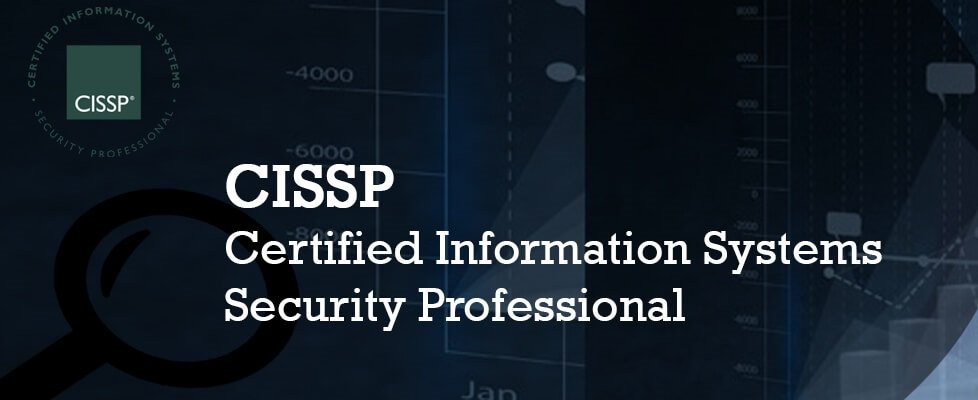Technology
5 Benefits of Getting CISSP Certification
The Certified Information Systems Security Professional is one of the most sought-after information security certifications. The International Information Systems Security Certification Consortium (ISC) is a non-profit organization that establishes information security certification and accreditation standards. The CISSP certification is globally recognized in the information security field. It validates a person’s understanding and expertise in developing, implementing, and managing a comprehensive security program.
CISSP Cyber Security Course Eligibility
There are no formal prerequisites for this cyber security course. However, (ISC)2 recommends that candidates have at least five years of full-time professional work experience in two and above of the eight CISSP common body of knowledge (CBK) domains.
The exam is a six-hour-long, 250-question test covering a broad range of security topics. Candidates must answer 70% of the questions correctly to pass the exam and earn their CISSP certification. The exam fee is $599.
CISSP Certification Domains
CISSP cyber security course syllabus covers 8 domains which are as follows:
- Security and Risk Management (22%) – It includes security governance, risk management framework, risk assessment, business continuity planning, and disaster recovery planning.
- Asset Security (10%) – This section includes the protection of an organization’s physical and logical assets. It provides asset classification, security control baselines, and data security.
- Security Engineering (15%) – It includes system design principles, access control models, cryptography, and security architecture.
- Communications and Network Security (12%) – It includes network security components, telecommunications, network security controls, and wireless networking security.
- Identity and Access Management (13%) – It includes identity lifecycle management, access control models, and single sign-on.
- Security Assessment and Testing (11%) – It includes vulnerability management, threat modelling, and penetration testing.
- Security Operations (14%) – It includes security incident response, security operations centre design, and security information and event management.
- Software Development Security (15%) – It includes secure coding practices, application security testing, and software development methodologies.
Top Advantages of CISSP Certification
The following are 5 benefits of having this certification.
1. Maximised earning potential
The typical CISSP salary is $131,030 per year. The CISSP certification reflects several prerequisites for the CISSP, including significant cybersecurity knowledge and four years of paid work in the sector. Employers value the CISSP credential as it increases their confidence in you.
2. Maximised career potential
There are more CISSP-certified individuals than credential holders. With over 2.9 million males and females in the cyber workforce worldwide, there is no better time to advance in this domain than now. With no formal cyber security course eligibility it becomes that much easier to build a better base for a career in this domain. More so when you have the (ISC)² Cybersecurity Workforce Study to help you. Furthermore, the CISSP concentrations (CISSP-ISSMP for Management, CISSP-ISSEP for Engineers, and CISSP-ISSAP for Architects) allow you to build on your understanding of the CISSP, expanding your knowledge of this certification.
3. Deep knowledge of the cybersecurity landscape
The CISSP is sometimes referred to as a “mile wide and an inch deep.” However, this popular phrase is technically incorrect. The CISSP addresses the fundamental ideas of cybersecurity – from security and risk management to communication and network security to security testing and operations – in its entirety. Beyond the regular elements of information security, a certified individual understands how the components of the information security environment correspond with the organization’s entire ecosystem.
4. Hands-on cybersecurity experience
To pass the CISSP exam, you must have worked in cybersecurity for at least four years. In addition, you must demonstrate equivalent to four years of full-time experience to pass. Along with an existing (ISC)² credential verifying your knowledge and integrity, a current (ISC)² credential holder who may attest to your competence and honesty is required. To keep their certification, CISSP certificate holders must complete a continuing professional education course with 120 credits every three years.
5. You will stand out as the best of the best
Professional certification in information security, such as the CISSP, is significant since it was created through years of study and research. The original information security credential to meet the stringent standards set forth by ANSI/ISO/IEC 17024 was the CISSP. The CISM also meets DoD IAM Levels II and III (8570 IAM Level II/III).
In addition, the CISSP is necessary for two DoD accredited 8570 IASAE Level III certifications: ISSEP (ISC) and ISCSP-ISSAP (ISC). The CISSP is also a prerequisite for the Australian Government Information Security Registered Assessors Program (IRAP), an official government certification program. Therefore, this certification is respected by the EC Council as well.
Conclusion
CISSP certification is the gold standard certification for information security professionals. Earning this credential will demonstrate that you have mastered the latest information security theory and practice. The advantages of having a CISSP-certified staff are many but can be summed up with two key points. First, certified professionals have proven their competence and skills in an increasingly competitive job market; second, businesses that employ certified professionals enjoy a significant return on investment (ROI) through reduced cybercrime losses and compliance fines.
Also Read: Things you need to know about CISSP certification

















